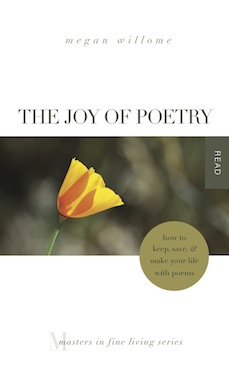Back in 1993, after an exciting college football game featuring a trick pass, my husband and I went to see Kenneth Branaugh’s version of Shakespeare’s Much Ado About Nothing. As Hey, Nonny Nonny flashed across the screen, John leaned over and whispered, “If this is in Old English, I’m screwed.”
Good news! It was only in Shakespearean English. And, better news! John had no trouble understanding it. That’s because Shakespeare did not write for English majors. He wrote for the stage. Most of the time, nothing is lost when Shakespeare is adapted.
Since then I’ve made it a point to see Shakespeare — either on film or live — when I can. So when I noticed a new version of Love’s Labour’s Lost would be at the Hill Country Film Festival, I made sure to get in line.
Here’s the enticing description from the the festival’s website:
Love’s Labour’s Lost | USA | Comedy | 95 minutes | Jake O’Hare & Jennifer Sturley
TEXAS PREMIEREThis film uses the language of Shakespeare’s original 16th-century play, in a modern boarding school setting. Ferdinand, the Student President of Navarre Academy, leads three of his comrades in making a chastity vow in order to focus on their studies. However, with the arrival of four new girls at their school, lead by the Princess of Aquitaine, the boys can’t help but quickly fall for each of their new classmates. Meanwhile, their eccentric Spanish teacher, Don Armado, falling for the school nurse Jaquenetta, catches himself in a love triangle with the janitor, Costard. As you might imagine, this all leads to some wild antics, including secret parties in the woods and students disguised as Russians. The film resolves with a cliffhanger ending and the promise of a reunion in a year’s time, defying typical comedic structure. (Texas Film)
The film’s Facebook page features the young men/heroes looking both lustful and bored, under the tagline: “Young blood doth not obey an old decree.” Sounds about right for a bawdy comedy, set in a high school. Here’s a timeless truth I took away from the movie: No one can resist the charms of exchange students.
The production, like many Shakespeare adaptations, makes some minor adjustments. Instead of a castle, the setting is a boarding school, which happens to be located near where I grew up. Moth, the male page of Don Armado the Spanish teacher, is played in this version by a lovesick female student. The Princess’s attendant, Boyet, traditionally an older man, here is young and gay. The nurse, Jaquenetta, wears what appears to be a sexy nurse costume straight out of the Halloween aisle. All these changes make a comedy from the 1590s just a little funnier.
Every Shakespeare production I’ve seen makes adjustments to the original text, whether it was the college production of Hamlet, set in a post-apocalyptic dystopia, or the community theater one, years later, in which Polonius was practically a stand-up comic. Some of these changes are choices of the director — taking the story in a different direction — and some are choices of the individual actor. Stories are meant to be told and retold and retooled in the retelling.
When John and I saw that version of Much Ado, we did not question why Denzel Washington was playing Don Pedro. We just asked ourselves why it took so long for someone to cast him as a prince.
As we enter summer, it’s the season for Shakespeare festivals, especially in parks. Only an hour and a half away, Zilker Park is staging a musical version of The Merry Wives of Windsor called The Merry Wives of Windsor, Texas, also known as “Lone Star Love.” In this version “Colonel” John Falstaff tries to woo the merry and wealthy wives of cattle ranchers. But as in the original tale, the wives are too wise for him. My daughter was in a version of Merry Wives ten years ago (not set on a cattle ranch). Doggone it, she and I might just need to giddy up over to Austin and check this one out.
* * *
If you have recently seen a production of a Shakespeare play, how did it help your understanding? What changed from the original? Does the ol’ “the movie ruined the book” trope still apply?
Photo by Eirien, Creative Commons, via Flickr. Post by Megan Willome, author of The Joy of Poetry.
Browse more Shakespeare resources
__________
“Megan Willome’s The Joy of Poetry is not a long book, but it took me longer to read than I expected, because I kept stopping to savor poems and passages, to make note of books mentioned, and to compare Willome’s journey into poetry to my own. The book is many things. An unpretentious, funny, and poignant memoir. A defense of poetry, a response to literature that has touched her life, and a manual on how to write poetry. It’s also the story of a daughter who loses her mother to cancer. The author links these things into a narrative much like that of a novel. I loved this book. As soon as I finished, I began reading it again.”
—David Lee Garrison, author of Playing Bach in the D. C. Metro
- Perspective: The Two, The Only: Calvin and Hobbes - December 16, 2022
- Children’s Book Club: A Very Haunted Christmas - December 9, 2022
- By Heart: ‘The night is darkening round me’ by Emily Brontë - December 2, 2022



L.L. Barkat says
This made me laugh: “Here’s a timeless truth I took away from the movie: No one can resist the charms of exchange students.”
You’ve piqued my interest, Megan. 🙂
Megan Willome says
Shakespeare demystified. 🙂
Katie says
“Stories are meant to be told and retold and retooled in the retelling.”
Megan Willome says
Thank you for noticing that line, Katie. It’s something I believe strongly, that the best stories should be retold and even changed in the process.
Katie says
Welcome, Megan:)
Thank you for a post I learned from and that helped me have a new appreciation for Shakespeare.
Here is another comment I liked:
“When John and I saw that version of Much Ado, we did not question why Denzel Washington was playing Don Pedro. We just asked ourselves why it took so long for someone to cast him as a prince.”
Kortney Garrison says
Thanks for this review, Megan! The musical Merry Wives sounds like a hoot! We’ve got Romeo and Juliet and The Complete Tales of William Shakespeare (Abridged) up this summer!
Megan Willome says
Excellent, Kortney!